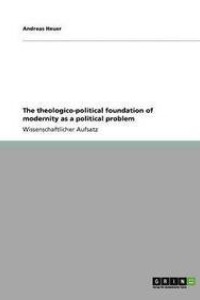
Liknande böcker
Neofunctionalism vs Liberal Intergovernmentalism : Are the Theories still valid today?
Bok av Ilyas Saliba
Seminar paper from the year 2010 in the subject Politics - Political Theory and the History of Ideas Journal, grade: 1,0, University of Hamburg (Institute of Political Science), course: European Integration Theories, language: English, abstract: Neofunctionalism and Liberal Intergovernmentalism (from now on I will use the abbreviations: NF and LIG in this paper) have been predominant approaches to theorizing Integration processes, especially in the first phase of theorizing European Integration. In the following essay I will begin by briefly lay out the main assumptions of the two approaches, drawing especially on their differences and similarities. In a second part I will discuss what these theories set out to do and raise questions about the actual accomplishments. Thirdly, I will turn to a critique of LIG and NF identifying their weaknesses, refering to Thomas Risse`s argument that Liberal Intergovernmentalism and Neofunctionalism are both lacking `...some categories necessary to capture distinctive features of the EU`2. This will lead me to the fourth part of my analysis in which I will demonstrate what and how other approaches can fill in the theoretical gaps and wholes that I have pointed out in my critique. In My conclusion I argue that European Integration Theory does not need overarching, universal theories, but rather is a useful conglomerate of different theories3, that might be combined in eclectically, and offer various toolkits for different suitable areas and levels of analysing and explaining Integration.







